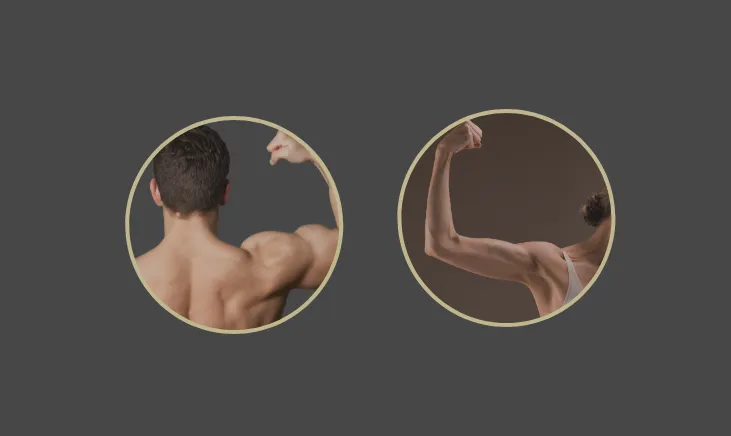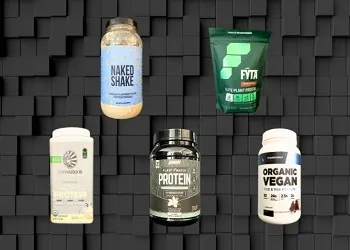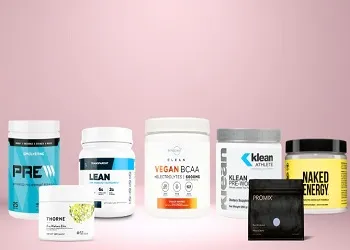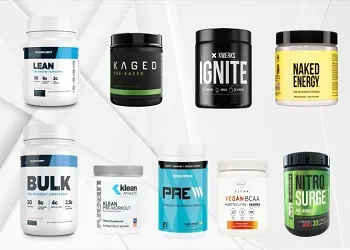Table of Contents
Quick Look
- Creatine supplementation can lead to bloating in some individuals due to increased muscle water retention.
- Bloat discomfort duration varies but typically subsides within a few days to a week as the body adjusts.
- Drink plenty of water to stay hydrated.
- Experiment with different forms of creatine.
- Start with a lower dosage and gradually increase.
- Take creatine with meals.
- Monitor symptoms and adjust as needed.
- Creatine monohydrate is standard, but other forms exist; find what works for you.
- Creatine is generally safe, but consult a healthcare professional if you have underlying health conditions.
As a dietitian specializing in gut health, I’m often asked about the effects of various supplements on digestive comfort.
One question that comes up frequently is, “Does creatine make you bloated?” Today, we will dive into this topic and separate fact from fiction.
Creatine Bloating: Myth or Reality?
Creatine is a popular supplement among athletes and fitness enthusiasts because it can enhance performance and increase muscle mass. Creatine is also one of the most researched supplements on the market. However, there’s a common concern that it may cause bloating. But is there any truth to this claim?
The Truth Behind Creatine Bloating
While some individuals may experience bloating when taking creatine, it’s not a universal side effect. Bloating occurs when excess gas builds up in the digestive system, leading to discomfort and a feeling of fullness.
Several factors can contribute to bloating while taking creatine.
1. Water Retention: Water retention is common when taking creatine supplements. Creatine draws water into your muscles, making them appear larger and temporarily increasing your weight. This extra water can also cause a feeling of bloating like your stomach is fuller or more swollen than usual.
But don’t worry; it’s usually just temporary, and once your body adjusts to the creatine, the bloating tends to go away on its own. It’s like when you drink a lot of water and feel bloated at first, but then your body regulates itself, and you feel back to normal.
If you’re experiencing bloating from creatine, just give it some time and stay hydrated, and the bloating should ease up soon enough.
2. Gastrointestinal Distress: For some folks, taking creatine might not agree with their stomachs. This means they could feel some discomfort in their bellies after taking it. It’s like when certain foods don’t sit well with you and give you a tummy ache.
Some common issues people might experience with creatine include feeling gassy, getting cramps, or even having diarrhea. It’s not pleasant, but it’s important to remember that everyone’s body reacts differently to things.
So, if you find that creatine is causing you these problems, try adjusting your dosage or switching to a different form of creatine to see if that helps.
If you’re really struggling with these symptoms, it’s always a good idea to talk to a doctor or a healthcare professional for advice.

Tips to Reduce Creatine Bloating
If you’re experiencing bloating while taking creatine, here are some strategies to alleviate discomfort:
Stay Hydrated
Staying hydrated is super important, especially when you’re taking creatine. When you’re hydrated, it’s like giving your body a big ol’ thumbs-up to keep everything running smoothly.
Drinking plenty of water can help your body flush out any extra fluids due to the creatine. It’s like drinking water after eating something salty – it helps your body balance things.
Plus, staying hydrated can also help reduce the chances of feeling bloated or uncomfortable. So, keep that water bottle handy and sip on it throughout the day. Your body will thank you for it!

Choose the Right Form
When it comes to creatine, there’s no one-size-fits-all approach. Discovering which form of creatine works best for you may take trial and error. Luckily, there are several options out there to choose from.
Creatine monohydrate is the most common and well-researched form, and many people find it gentle on their stomachs; however, if you find that creatine monohydrate doesn’t sit well with you, fear not!
Other forms are available, such as creatine ethyl ester or creatine hydrochloride, which might be easier for your digestive system to handle.
Don’t throw in the towel if you’re experiencing bloating or discomfort with one type of creatine. Keep exploring your options until you find the best form for you and your gut.

Gradual Dosage
The recommended dosage of creatine varies depending on your goals. When it comes to taking creatine, slow and steady wins the race. Instead of diving in headfirst with a hefty dose, it’s often a good idea to start with a smaller amount and gradually increase it over time. You want to give your body a chance to get used to the creatine without overwhelming it.
Starting with a lower dosage gives your body time to adapt and minimize the chances of experiencing unpleasant side effects, like bloating or digestive issues. Once your body has adjusted to the creatine, you can gradually increase the dosage to achieve your desired results.
It’s all about finding the right balance for your and your body’s needs. So, if you’re new to creatine or have had negative experiences in the past, consider starting slow and gradually working your way up. Your gut will thank you for it!

Pair With Food
Pairing your creatine intake with a meal can be a game-changer in minimizing potential tummy troubles. By consuming creatine alongside a meal, you’re giving your stomach something else to focus on besides the creatine alone. This can help reduce the likelihood of experiencing gastrointestinal distress, such as gas or cramping, which some folks might encounter when taking creatine on an empty stomach.
Next time you’re gearing up to take your daily dose of creatine, consider doing so alongside breakfast, lunch, or dinner. Not only will it help ease any digestive discomfort, but it’ll also ensure that you’re getting the most out of your creatine supplementation.
Plus, who doesn’t love an excuse to enjoy a tasty meal? Just be sure to choose nutrient-rich foods that balance carbohydrates, protein, and healthy fats to support your overall health and well-being.

The Benefits of Creatine Supplementation
While bloating may be an unwanted side effect for some, it’s essential to recognize the potential benefits of creatine supplementation:
- Improved muscle hydration: The temporary increase in water retention can enhance muscle hydration, leading to better performance during workouts.
- Increased muscle mass, speed, and repair: Creatine has been shown to stimulate muscle protein synthesis, aiding in muscle repair and growth.
Final Thoughts on Creatine Bloating
In conclusion, creatine bloating is a potential side effect that varies from person to person. Don’t let the fear of bloating deter you from reaping the benefits of creatine supplementation.
While some individuals may experience bloating or water retention, others may not notice any adverse effects. Experimentation with different forms and dosages and staying hydrated can help minimize bloating while reaping the performance benefits of creatine.
Keeping tabs on how your body responds to creatine is vital to ensuring a smooth and comfortable experience. It’s like being your body’s detective, always looking for clues or signs that something might not be correct.
By paying close attention to how you feel after taking creatine, you can better understand how it affects you personally and make any necessary adjustments to your dosage or timing.
For example, if you notice that you tend to feel bloated or gassy after taking creatine, you might try lowering your dosage or taking it with food to see if that helps. On the other hand, if you’re not experiencing any adverse side effects and are feeling great, you can feel confident that you’re on the right track.
Ultimately, everyone’s body is different, so what works for one person might not work for another. By tuning in to your body’s signals and being proactive about making necessary changes, you can ensure your creatine supplementation journey is as smooth and comfortable as possible.
Frequently Asked Questions
Does creatine make you bloated?
Creatine can cause bloating in some individuals due to its ability to increase muscle water retention. However, not everyone experiences bloating when taking creatine, and it often depends on factors such as dosage, hydration levels, and individual sensitivity.
How long does creatine bloating last?
The duration of creatine bloating varies from person to person. For some, it may subside after a few days as the body adjusts to the supplement. However, in others, it may persist for a more extended period. Staying hydrated and adjusting the dosage or timing of creatine intake can help alleviate bloating.
How can you reduce creatine bloating?
To reduce bloating while taking creatine, drink plenty of water to stay hydrated, experiment with different forms of creatine, start with a lower dosage and gradually increase it, take creatine with meals, and monitor your symptoms to make adjustments as needed.
What is the best creatine supplement?
The best creatine supplement varies depending on individual preferences and needs. Creatine monohydrate is the most well-researched and commonly used form, but other options, such as creatine ethyl ester or creatine hydrochloride, may be suitable for some individuals. It’s essential to experiment and find the best form for you.
Can creatine cause water weight gain?
Yes, creatine can cause temporary water weight gain due to its ability to increase muscle water retention. This can lead to a slight increase in overall body weight, but it’s generally not permanent and does not represent an increase in fat mass.
Is creatine safe to take?
Creatine is considered safe for most people when taken at recommended doses. However, individuals with kidney problems or other underlying health conditions should consult a healthcare professional before starting creatine supplementation. Additionally, choosing high-quality supplements from reputable brands and carefully following dosing guidelines are essential.














